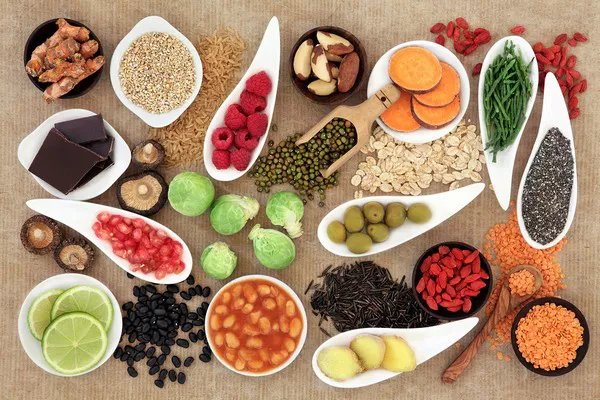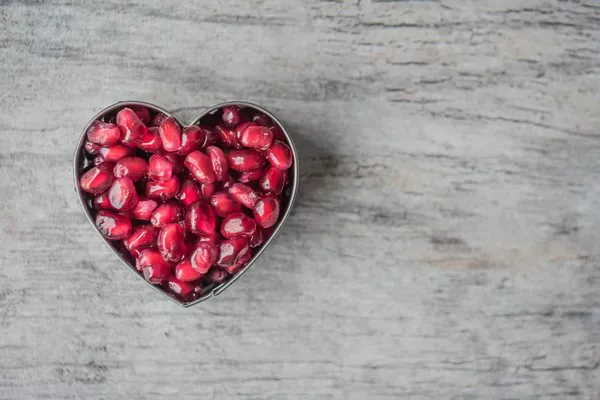Nutritionists Explain the Surprising Benefits of These Foods for Your Gut
Gut health plays a critical role in overall well-being, influencing digestion, immunity, brain function, and even heart health. The gut microbiome, a community of microorganisms residing in our digestive system, is responsible for many of these functions, impacting how our body absorbs nutrients, produces hormones, and regulates neurotransmitters.
Diet is one of the most influential factors in maintaining a healthy gut, and many foods considered “bad” for you actually have hidden benefits for your gut. Nutritionists have identified six such foods and explained their surprising positive impact on gut health.
1. Sauerkraut
Despite its bad reputation due to high sodium content, sauerkraut is a powerhouse for gut health. “In my opinion, sauerkraut is the number one food that is misunderstood but beneficial for gut health,” says Lisa Andrews, an educator and registered dietitian nutritionist. One-half cup of sauerkraut contains two grams of fiber, about 7% of your daily fiber needs, which is essential for digestion and gut bacteria growth.
When properly fermented, sauerkraut also provides probiotics—beneficial bacteria that support gut and immune health. However, be mindful that canned sauerkraut may lack these beneficial bacteria because the pasteurization process kills them. Opting for raw, fermented sauerkraut is the best choice for gut health.
Andrews suggests using sauerkraut as a topping for sandwiches or as a side to pork or beans.
2. Beans
Beans are often avoided due to concerns about bloating, but they are a rich source of fiber and prebiotics, which nourish gut bacteria. “While some avoid beans and lentils due to fear of bloating, they are among the most beneficial prebiotic foods for promoting gut microbiome diversity and resilience,” says Raksha Shah, a registered dietitian nutritionist.
Beans, such as black beans, contain high amounts of fiber, with just half a cup providing 8 grams, nearly 30% of your daily fiber intake. Bloating may be a sign that your gut is adjusting to the increased fiber, which is a good sign of a healthy gut.
3. Potatoes
Potatoes often receive a bad reputation because of their high glycemic index, but when cooked and then cooled, they produce resistant starch, which can improve insulin sensitivity, reduce inflammation, and support gut microbiome diversity. Resistant starch isn’t digested in the small intestine and instead gets fermented in the colon by gut bacteria, producing beneficial short-chain fatty acids.
To reap the benefits of resistant starch, try enjoying cooked and cooled potatoes in dishes like potato salad.
4. White Rice
Like potatoes, white rice is criticized for its refined carbohydrates, but it too is a source of resistant starch when cooked and cooled. Ana Pruteanu, a registered dietitian nutritionist, explains that cooling rice increases its resistant starch content, which in turn boosts dietary fiber intake.
Studies have shown that reheating cooled rice not only benefits gut health but also helps regulate blood sugar levels. Research has indicated that cooled rice leads to smaller blood sugar spikes in people with type 1 diabetes, thanks to its resistant starch content.
5. Cruciferous Vegetables
Cruciferous vegetables, including broccoli, Brussels sprouts, cabbage, cauliflower, and kale, often get a bad rap because they can cause bloating in some individuals. However, they are a valuable addition to any diet. “Cruciferous vegetables are loaded with fiber, which is crucial for maintaining good gut health and feeding our gut bacteria,” says Alyssa Smolen, a registered dietitian nutritionist.
These vegetables contain sulfur-containing compounds that may reduce the risk of colorectal cancer. A cup of Brussels sprouts, for example, provides 3 grams of fiber, about 10% of the recommended daily intake. If you’re sensitive to these vegetables, try consuming them in smaller portions or enjoy them in flavorful dishes like roasted romesco vegetables.
6. Dark Chocolate
Dark chocolate, particularly varieties with 85% cocoa, is not only a treat for your taste buds but also a boost for your gut health. “Dark chocolate provides polyphenols, plant compounds that feed beneficial gut bacteria and help reduce gut inflammation,” says Shah.
A study found that healthy adults who consumed an ounce of 85% cocoa chocolate daily for three weeks had a more diverse gut microbiome compared to those who ate no chocolate. Dark chocolate acts as a prebiotic, helping beneficial gut bacteria grow and thrive.
Other Strategies for Better Gut Health
While diet plays a significant role in gut health, other lifestyle factors are also essential.
Stay Hydrated: “Staying hydrated supports digestion and maintains a healthy gut lining,” advises Shah. Increasing fiber intake requires adequate fluid intake to help fiber function properly and ease bowel movements.
Manage Stress: “Creating a stress management plan can help maintain a healthy gut,” says Macy Diulus, a registered dietitian. Chronic stress is closely linked to digestive issues, especially irritable bowel syndrome (IBS).
Get Enough Sleep: Sleep is vital for repairing and recharging the body. Studies show that sleep deprivation can negatively impact the gut microbiome, so aim for 7–9 hours of quality sleep each night.
Conclusion
While certain foods may have been labeled as “bad,” many of them have surprising benefits for gut health. Nutritionists recommend incorporating foods like sauerkraut, beans, cruciferous vegetables, and dark chocolate into your diet. Additionally, foods like cooled potatoes and white rice are excellent sources of resistant starch. These foods help nourish the beneficial bacteria in your gut, promoting a healthy microbiome, regular bowel movements, and reduced inflammation.
By paying attention to both your diet and overall lifestyle, you can support your gut health and enhance your overall well-being.
Related Topics






























